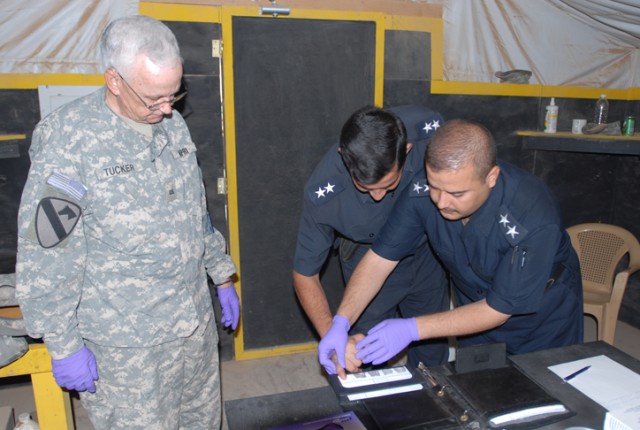
FORWARD OPERATING BASE WARRIOR, KIRKUK, Iraq -- Anyone who's watched a crime-scene investigation TV show can tell you how important fingerprints are in finding the bad guys. Fingerprints lifted from a knife, a soft drink can or rocket-propelled grenade could be the key to identifying and capturing a criminal.
Military police from the 218th Military Police Company and one U.S. law enforcement professional provided a class on the collection of fingerprints at a crime scene for Iraqi investigating officers from several Iraqi police stations in Hawijah, Iraq, at Joint Security Station McHenry, Oct. 11.
The purpose of the training was to help them learn how to retrieve high-quality evidence, explained 2nd Lt. Megan Howell, a Canton, Texas, native and a military police platoon leader with 218th MP Co. This class also certifies these police officers in fingerprinting, allowing them to present this evidence in a courtroom.
"These classes could lead to more successful prosecutions," said Howell.
Six Iraqi policemen attended the training and were all given the opportunity to practice their fingerprinting techniques under the supervision of the instructors.
"This was my first time doing this type of class with the U.S.," said 1st Lt. Muhammed Hassan, an Iraqi investigations officer. "It was very good."
This is the fourth class of five for these policemen, according to Howell. She said other classes designed to improve their skills as investigators taught putting together an evidence packet, working and preserving crime scenes, community policing and collecting evidence.
"Every police officer in the states is expected to know how to do these things," said Howell.
"These are skills that all investigators should know," Muhammed agreed. "Investigators are the key to getting bad guys off the streets."

Social Sharing